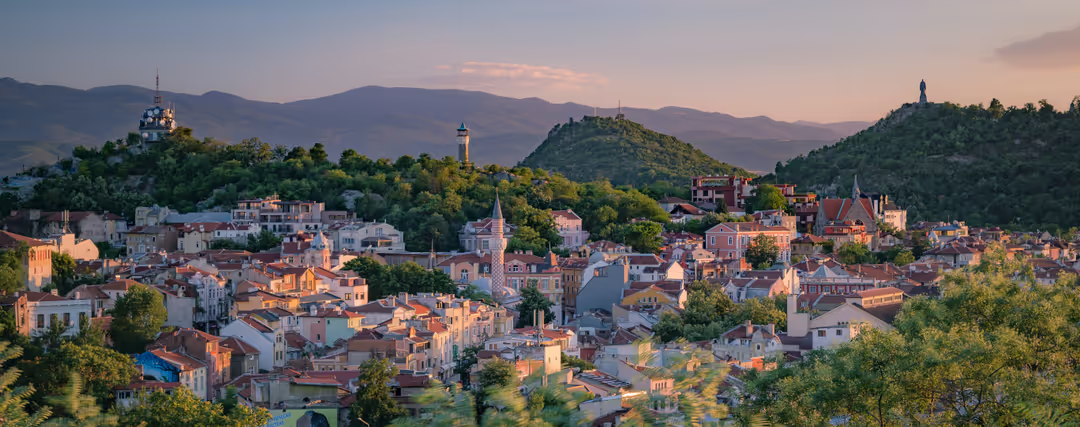

Are you planning your Erasmus in Bulgaria? In this article, you’ll find a lot of interesting information about your exchange program. We tell you about the best cities to study in, different options and requirements for international students, what to do during your stay in Bulgaria, information about the different accommodation options available and the best Universities. With a rich history, captivating architecture and unparalleled hospitality, Bulgaria offers students the opportunity to discover a country that uniquely combines tradition and modernity. Let's get to it!
Several cities are popular Erasmus destinations in Bulgaria. On the one hand, there is Sofia, the capital, which stands out as a cultural and academic epicentre, where the combination of historic architecture and modern educational institutions creates a stimulating environment. There’s also Plovdiv, an ancient city known for its romantic charm, with its old town and open-air theatres. Varna, on the shores of the Black Sea, combines university life with coastal beauty, creating a relaxed atmosphere. We also highlight Veliko Tarnovo which, with its mediaeval history and cobblestone streets, captivates those looking to immerse themselves in a more traditional Bulgaria.
First of all, the cost of living in the country is usually quite affordable compared to other European destinations. This is going to allow you to enjoy your experience to the fullest, being able to take advantage of all the plans that come your way.
Secondly, you’ll have the opportunity to delve into the local culture and learn about their way of life. Not only by visiting sites and monuments, but also by connecting with locals. Remember that they tend to be very hospitable and friendly to foreigners.
During your exchange in Bulgaria, you’ll have the opportunity to learn Bulgarian and also to practise and improve your English daily. The latter is the language that international students use to communicate with each other, and it’s the language in which you will most likely have classes. Make the most out of it!
Another reason we want to highlight is the geographical location of Bulgaria. It’s in Eastern Europe and it has good communication with other nearby countries, such as Serbia, Greece, Turkey, Romania and Northern Macedonia. Take the opportunity to explore as much as you can!
Bulgaria offers something special for every type of student, from history buffs to lovers of adventure and good food. Here are some more details:
For historians, exploring the ancient city of Plovdiv, with its perfectly preserved old town and Roman theatres is a must. In addition, Veliko Tarnovo, the ancient mediaeval capital, offers a unique experience with its imposing Tsarevets Fortress, which stands majestically over the Yantra River.
Those who enjoy exploring the various corners of a city will find their place in Sofia, where modern architecture intertwines with historic monuments. The National Palace of Culture and the lively nightlife on Vitosha Boulevard offer a good urban experience, while cafés and art galleries allow you to immerse yourself in contemporary culture.
Do you consider yourself a foodie and like to try different gastronomies? Bulgaria offers a delicious culinary adventure. Try the banitsa, a traditional puff pastry, or enjoy a feast of yoghurt and white cheese dishes. Local markets, such as the Zhenski Pazar in Sofia, offer a variety of fresh, authentic products that you can’t miss.
For the more adventurous, there's a variety of scenery to choose from. The Vitosha Nature Park, near Sofia, is an ideal destination for hiking and skiing, offering panoramic views of the city. You can also explore the caves in the Rhodope Mountains or participate in watersports on the Black Sea coast. Make the most of your exchange!
Find the ideal accommodation in your desired location